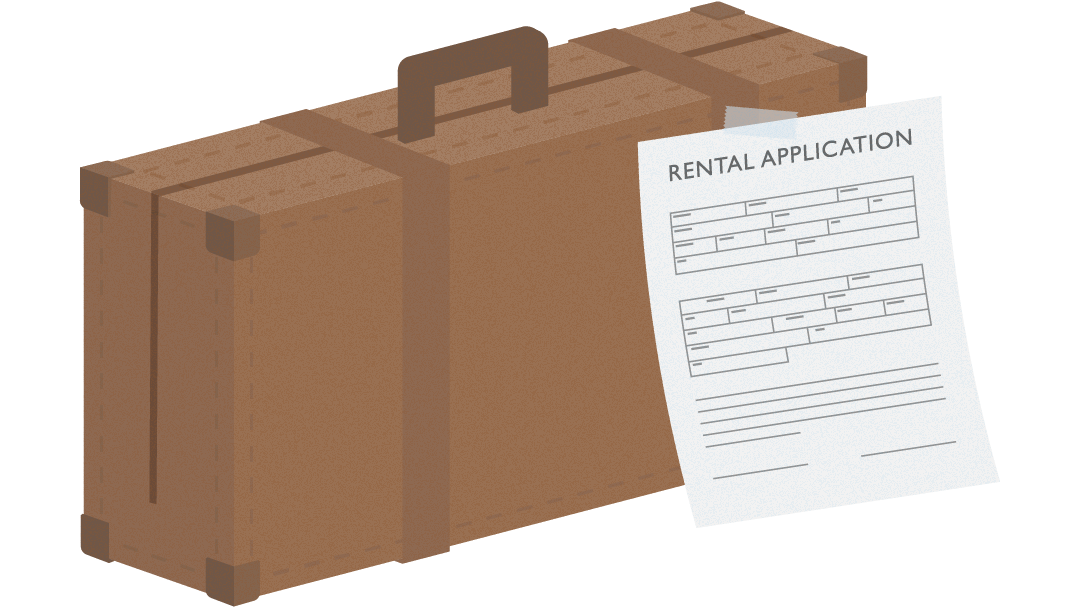

Renting Rulebook
Rule #1 Define Your Needs and Budget
The two most common questions people ask when looking for a place to rent: “How much should I pay for rent,” or, more specifically, “How much should I pay for rent based on my salary?”
Start by defining your needs and preferences. Consider factors such as the desired location, the ideal size of the living space, necessary amenities, and any budget constraints. A general rule of thumb is that housing costs should not be more than 25% of your budget. We strongly recommend trying out our rent affordability calculator to get an idea of what you can comfortably afford.
Take the time to evaluate your financial situation thoroughly, determine the maximum rent you can afford, and factor in additional costs like utilities and maintenance to ensure a realistic budget that aligns with your economic well-being.
Once you have established your budget, narrow your search and focus on properties that meet your requirements. By defining your needs and budget, you can ensure your future rental aligns with your lifestyle and financial reality.

Rule #2 Research and Explore Options
Once you've established your budget, including determining how much rent you can afford based on your salary, it's time to begin your rental property search! Be sure to take advantage of popular platforms (like Zillow) to find local listings of apartments for rent or houses for rent in your desired location. You can easily filter properties by criteria such as location, size, amenities (like pet-friendly apartments or apartments with in-unit laundry), and price, helping you narrow your search efficiently before scheduling in-person visits.
After finding potential future homes, it's always a good idea to attend open houses or schedule viewings to see what it looks like in person. At these visits, assess the physical space and neighborhood dynamics. Take note of the proximity to amenities, the overall condition of the property, and any red flags that may influence your decision.
Rule #3 Fill Out a Rental Application
When you find a property that feels like a good fit, it's time to answer the question: "How to fill out a rental application?" Thankfully, filling out a rental application is a fairly easy process, as long as you have all the required documentation. You'll need to provide documentation supporting your ability to pay rent and demonstrate that you'll be a responsible tenant. Expect to provide things like proof of income, employment verification, and any landlord references. After you've submitted your completed rental application, landlords typically conduct background and credit checks before letting you know their final decision.
Rule #4 Inspect the Property and Sign the Lease
Before you move in, you’ll want to carefully inspect the property to identify any pre-existing issues or damages. Review the interior and exterior, examining elements such as walls, floors, appliances, plumbing, and overall structural integrity. If you encounter concerns, document them thoroughly through written notes or photographs and promptly communicate these findings to the landlord. Even if these things can’t be solved, you’ll want proof that the damage was there before you moved in so that you don’t get charged for it.
After resolving any concerns from the inspection, review the lease agreement carefully before signing it. Pay close attention to critical details such as the duration of the lease, the agreed-upon rental price, and specific requirements related to the security deposit. Take note of any rules or restrictions the landlord imposes which may influence your living experience. Pet's often have specific rules, including whether you can have them or not. Sometimes there is an extra pet fee if you have them. When you are ready, sign the lease and submit the security deposit and initial rent payments as outlined. Make sure to keep a copy of the signed lease for your records.
Renters Insurance
Obtaining renters insurance is a wise decision for tenants as it provides financial protection and peace of mind in case of unexpected events. Renters insurance usually covers personal belongings in the event of theft, fire, or other covered risks, helping tenants recover the cost of damaged or stolen items. Additionally, it often includes liability coverage, protecting renters if someone is injured within their rented space. To get renters insurance, assess your property value to determine the appropriate coverage amount. Then, shop for policies from reputable insurance providers, considering factors such as coverage limits, deductibles, and additional endorsements. Renter's insurance is a relatively affordable investment that safeguards against potential losses, making it a smart choice for those seeking financial protection and security in their rented homes.
Rule #5 Enjoy your New Home
Part of a happy renting experience is being a responsible renter. As a tenant, you should pay rent on time and follow the lease terms. Late payments can impact your credit score, so it's worth it to set up automatic payments if you can. You are also responsible for maintaining the rented space and promptly reporting any issues to the landlord. You must also comply with community rules, interact respectfully with neighbors, and adhere to proper waste disposal practices. These responsibilities contribute to a positive living environment for you and property owners.
Neither Banzai nor its sponsoring partners make any warranties or representations as to the accuracy, applicability, completeness, or suitability for any particular purpose of the information contained herein. Banzai and its sponsoring partners expressly disclaim any liability arising from the use or misuse of these materials and, by visiting this site, you agree to release Banzai and its sponsoring partners from any such liability. Do not rely upon the information provided in this content when making decisions regarding financial or legal matters without first consulting with a qualified, licensed professional.

